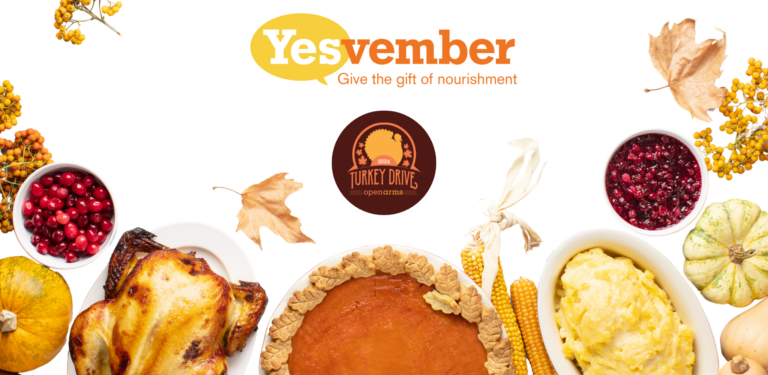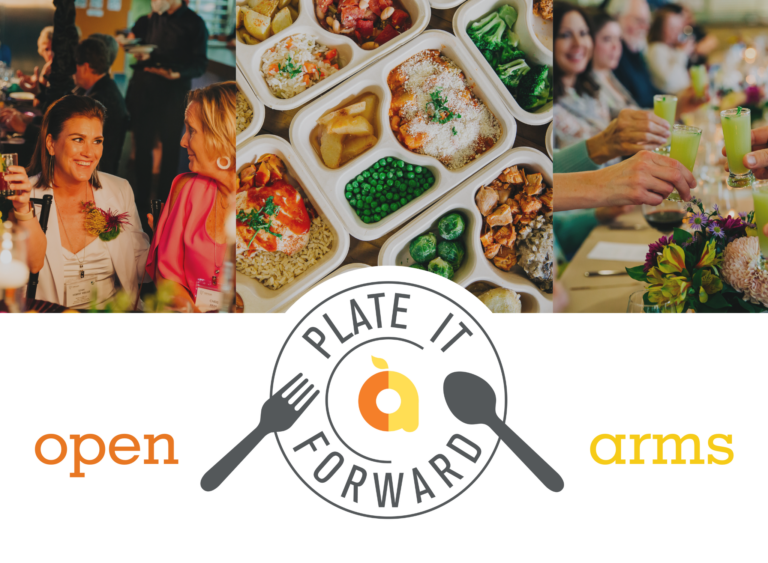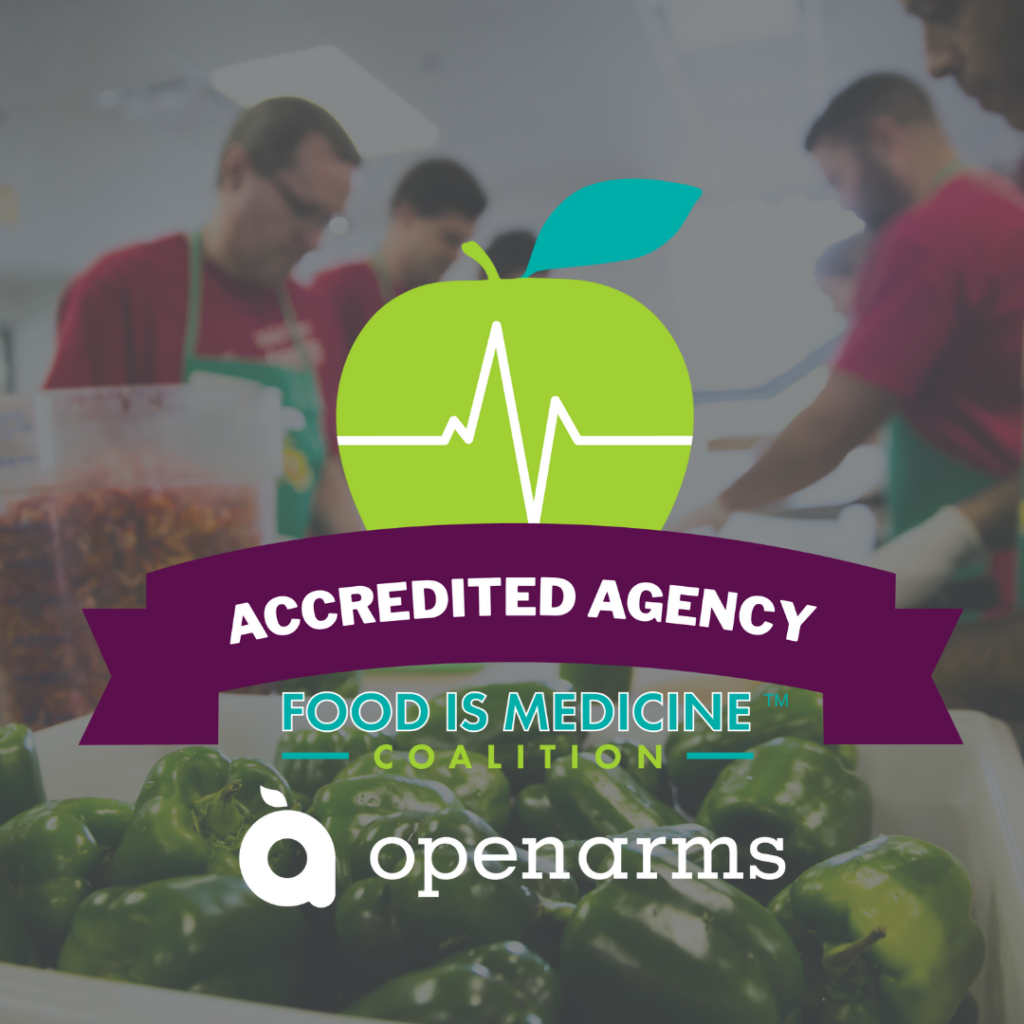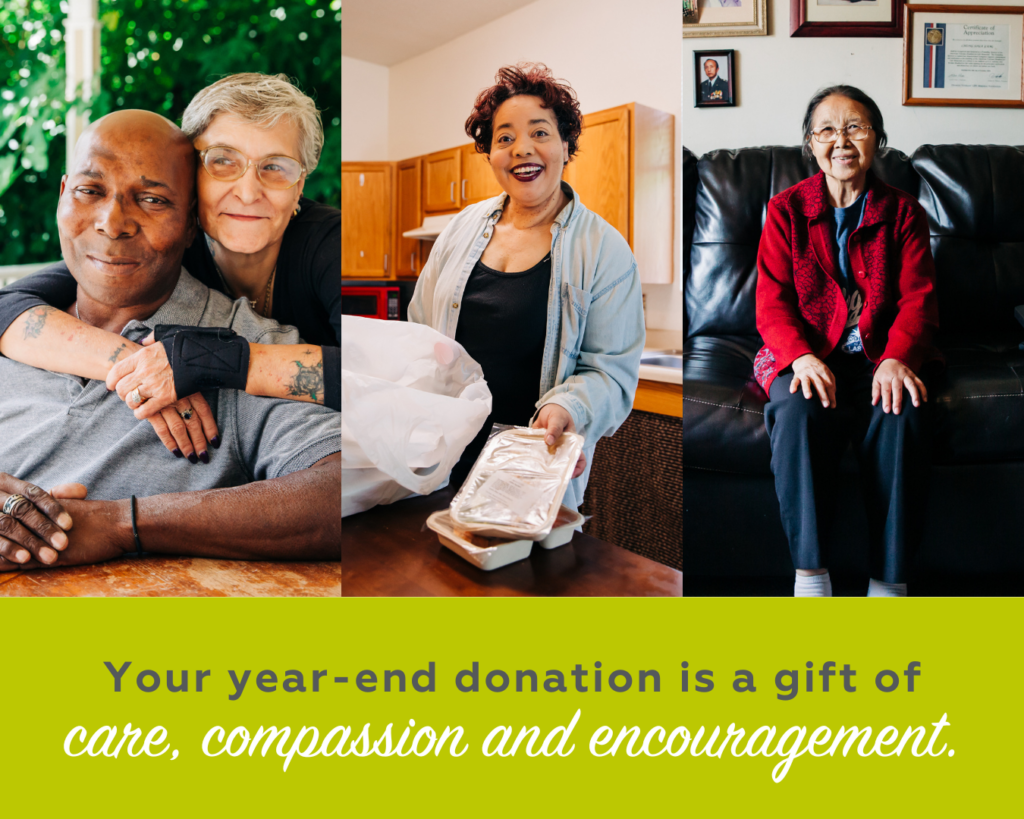The following are comments from talks I gave at St. Joan of Arc in Minneapolis on Sunday, November 20.
I came to my work for very personal reasons.
I needed to try to make sense of the AIDS crisis. I had watched my friends get diagnosed with this new disease in the 1980s and saw how they lost their jobs, and their homes, and filed for bankruptcy, and became estranged from their families and were sometimes condemned by their faith communities.
For the world to make sense to me, something good had to come from HIV/AIDS.
One of the good things was Open Arms where I got to see – every day – how a community can come together to show true compassion by making sure people who were living with HIV/AIDS had nutritious food to eat and weren’t forgotten.
One of the good things that has come from the AIDS pandemic is our work in Africa which began with a trip to Cape Town in 2000 and where, ever since, Open Arms has assisted efforts to feed people living with HIV/AIDS in Guguletu.
Another good thing that has come from this is Open Arms’ decision to serve people living with other chronic and progressive diseases. We realized if nutritious meals were important for people with HIV/AIDS, it was just as important for people confronting cancer, or MS or ALS.
And then we got to thinking about the food itself. If healthy, organic, locally sourced food was important for those of us with the resources to purchase it, wasn’t it just as important – maybe even more important – that our clients facing disease eat those same healthy foods? And we started spending a lot more money on food – working with local farmers and even growing our own produce on two acres of certified organic farmland in Belle Plaine, to make sure people who are ill in the Twin Cities have the healthiest food possible.
Eventually, what I realized, is that our work at Open Arms wasn’t really about making something good come from a terrible disease – it was about justice. Specifically, it’s about food justice. It’s about the right food, in the right amount, for everyone, for healthy living. It’s about making sure that someone with AIDS, or cancer, or someone who is poor, or elderly, or a shut-in, or is young, doesn’t go hungry.
But it’s not enough to just fill the stomach with empty calories. It’s not enough, when some group announces a food drive, to pull the dustiest, dented can of food from your shelf and put it in a food bin and feel good about feeding the hungry. It’s not enough to be shopping at a grocery store and buy the least expensive item you can and give that to a food shelf.
Our response to hunger in this country is perpetuating obesity and diabetes and heart disease and cancer. We see it every day at Open Arms. We are not engaged in a health care debate in this country, we are having a debate over how we pay for sickness and disease. If we truly care about health, we would strive to make sure that everyone – everyone – whether, as Hubert Humphrey once said, they are “in the dawn of life, the children; the twilight of life, the aged; or the shadows of life, the sick, the needy and the handicapped,” have access to the same kinds of food – fruits, vegetables, protein; locally grown, organic, sustainable – that those of us with resources eat ourselves and that we share with our families.
This is the second year that Open Arms has encouraged people to take the SNAP Challenge. SNAP is the Supplemental Nutrition Assistance Program – formerly known as food stamps. We ask the community to join us for a week or even a few days, and live on what an average food stamp recipient in the state of Minnesota would receive – about $4.30 a day. Our weeklong SNAP Challenge began last Thursday and will conclude on Thanksgiving.
Wanting to acknowledge that some people on SNAP might not have a grocery store in their neighborhood or might lack transportation to a grocery store, this year I did all of my grocery shopping for the week at my nearest convenience store – Walgreens. Here’s a typical day of meals for me this week: Breakfast – oatmeal, milk, coffee; Lunch – a peanut butter sandwich; Dinner – Ramen noodles; and for a Snack – one ounce of raisins. You notice what is missing from my diet this week – fresh vegetables, fruit and healthy sources of protein. And those items are missing from my diet because they aren’t readily available at convenience stores and they are more expensive than processed foods.
For Open Arms, the SNAP Challenge is an opportunity to raise awareness of the record number of people in this country who are food insecure. For me, it’s a choice I make one week a year to live on food stamps. For the 46 million Americans who receive SNAP assistance, including the 583,000 Minnesotans who don’t always know where their next meal is coming from, this is all too real.
There is not a more basic justice issue than food. Christ knew it. In Matthew, he said, “For I was hungry and you gave me food.” But if Christ were here today, and he saw what we eat and especially what the poor, and the young, and the elderly, and the sick and the needy and the handicapped, eat in this country, I think he would ask for a rewrite. I think Christ would say, “For I was hungry and you gave me nutritious food.”
I came to Open Arms because I believed then, and I still believe, that HIV/AIDS is a defining issue of our time. I’m going to San Francisco, not because I believe the battle has been won, but because I believe we can take all of what we have learned in 30 years of the AIDS pandemic and use that knowledge and experience to be part of an even broader movement – a food justice movement which could actually prevent people from ever needing the services of organizations like Open Arms in the first place.
If we are successful in that endeavor, this would end up being a really good thing that has come from a terrible disease, HIV/AIDS.






